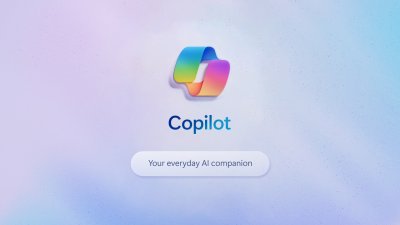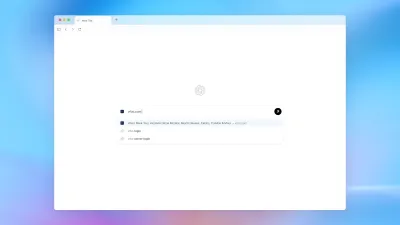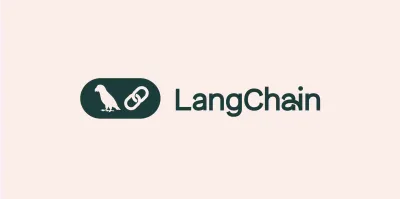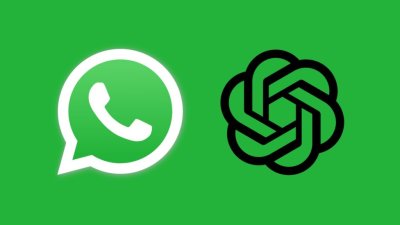Microsoft Elevates Copilot on Windows with Direct Office Document Creation and Cross-Platform Email Integration
By: @devadigax

Microsoft is rolling out a significant update to its Copilot app on Windows, transforming the AI assistant from a conversational tool into a proactive productivity powerhouse. The latest enhancements empower Copilot to directly create Office documents from chat sessions and, critically, connect to both Gmail and Outlook accounts, marking a pivotal step in Microsoft's vision for deeply integrated AI experiences. This update is initially available to Windows Insiders, signaling an imminent broader release to all Windows users.
The ability to create Office documents directly from a chat interface is a game-changer for workflow efficiency. Users will no longer need to switch applications or manually transfer information from Copilot's responses into a Word document, Excel spreadsheet, or PowerPoint presentation. Imagine a scenario where a user asks Copilot to "draft a report summarizing the Q3 sales figures, highlighting key growth areas." Copilot, leveraging its understanding of the request and potentially pulling data from connected sources (though not explicitly stated yet, this is the logical progression), could then generate a draft document, complete with formatting, directly within the user's preferred Office application. This eliminates several steps in the creative process, reducing friction and allowing users to move from idea to execution with unprecedented speed. This feature promises to be particularly beneficial for tasks requiring rapid content generation, such as meeting summaries, initial report drafts, or even creative writing prompts that need to be captured immediately in a structured format.
Equally impactful is the integration with email services, specifically Gmail and Outlook. This feature positions Copilot as a central hub for communication management. Users can now ask Copilot to "summarize my unread emails from the last 24 hours" or "draft a reply to Sarah acknowledging receipt of her document and confirming I'll review it by Friday." For many, email management is a significant time sink, and having an AI assistant capable of processing, summarizing, and even drafting responses based on conversational prompts can dramatically improve productivity. The inclusion of Gmail support is particularly strategic, broadening Copilot's appeal beyond Microsoft's ecosystem and acknowledging the diverse digital lives of its users. This cross-platform compatibility is crucial for Copilot to truly become a universal personal assistant, rather than one limited to Microsoft's proprietary services.
These updates represent a significant leap in Microsoft's ambitious "AI Everywhere" strategy. The company has been steadily embedding Copilot across its product stack – from Windows and Microsoft 365 to Edge and Security tools. The goal is clear: to make AI an invisible, yet indispensable, layer that enhances every digital interaction. By bringing document creation and email management directly into the Windows operating system via Copilot, Microsoft is blurring the lines between the OS, productivity applications, and the internet, creating a more cohesive and intelligent user experience. This move underscores the competitive landscape in the AI assistant space, where giants like Google, Apple, and Amazon are also vying for dominance. Microsoft’s differentiation lies in its deep integration with enterprise-grade productivity tools and its operating system, aiming to make Copilot the ultimate work and life assistant.
The underlying technology powering these features is, of course, advanced large language models (LLMs) and generative AI. These models have been trained on vast datasets, enabling them to understand complex natural language queries, generate coherent and contextually relevant text, and even interpret instructions for structuring information into various document formats. The challenge for Microsoft lies not just in the raw power of these models, but in their seamless, secure, and efficient integration into the operating system without compromising performance or user privacy. Ensuring that email interactions, in particular, adhere to stringent security protocols and user consent is paramount, and Microsoft's long-standing experience in enterprise software gives it a strong foundation in this regard.
The implications for personal and professional productivity are profound. Users can expect a reduction in context switching, as many tasks that previously required opening multiple applications can now be initiated and completed within the Copilot interface. This leads to a more fluid and less fragmented workflow. Furthermore, by automating mundane or repetitive tasks like drafting standard emails or summarizing lengthy documents, Copilot frees up valuable human cognitive capacity for more complex, creative, and strategic work. This democratizes access to sophisticated AI capabilities, making advanced tools accessible to a broader audience who may not have the technical expertise to leverage AI through more complex interfaces.
Looking ahead, these updates lay the groundwork for an even more intelligent and proactive Copilot. One can envision a future where Copilot not only responds to explicit commands but also anticipates user needs, offering suggestions based on calendar events, recent communications, or ongoing projects. For instance, Copilot might proactively suggest drafting a meeting agenda based on an upcoming calendar invite, or offer to summarize a long email thread related to a project the user is currently working on. The operating system, powered by AI, is evolving from a mere platform for running applications into an intelligent partner that actively assists and augments human capabilities.
In conclusion, the latest enhancements to Copilot on Windows represent a significant milestone in the evolution of personal computing. By enabling direct Office document creation and integrating cross-platform email management, Microsoft is not just adding new features; it is fundamentally reshaping how users interact with their operating system and productivity tools. This move solidifies Copilot’s position as a leading AI assistant, poised to redefine productivity and usher in a new era of intelligent, seamless digital experiences for millions of users worldwide.
The ability to create Office documents directly from a chat interface is a game-changer for workflow efficiency. Users will no longer need to switch applications or manually transfer information from Copilot's responses into a Word document, Excel spreadsheet, or PowerPoint presentation. Imagine a scenario where a user asks Copilot to "draft a report summarizing the Q3 sales figures, highlighting key growth areas." Copilot, leveraging its understanding of the request and potentially pulling data from connected sources (though not explicitly stated yet, this is the logical progression), could then generate a draft document, complete with formatting, directly within the user's preferred Office application. This eliminates several steps in the creative process, reducing friction and allowing users to move from idea to execution with unprecedented speed. This feature promises to be particularly beneficial for tasks requiring rapid content generation, such as meeting summaries, initial report drafts, or even creative writing prompts that need to be captured immediately in a structured format.
Equally impactful is the integration with email services, specifically Gmail and Outlook. This feature positions Copilot as a central hub for communication management. Users can now ask Copilot to "summarize my unread emails from the last 24 hours" or "draft a reply to Sarah acknowledging receipt of her document and confirming I'll review it by Friday." For many, email management is a significant time sink, and having an AI assistant capable of processing, summarizing, and even drafting responses based on conversational prompts can dramatically improve productivity. The inclusion of Gmail support is particularly strategic, broadening Copilot's appeal beyond Microsoft's ecosystem and acknowledging the diverse digital lives of its users. This cross-platform compatibility is crucial for Copilot to truly become a universal personal assistant, rather than one limited to Microsoft's proprietary services.
These updates represent a significant leap in Microsoft's ambitious "AI Everywhere" strategy. The company has been steadily embedding Copilot across its product stack – from Windows and Microsoft 365 to Edge and Security tools. The goal is clear: to make AI an invisible, yet indispensable, layer that enhances every digital interaction. By bringing document creation and email management directly into the Windows operating system via Copilot, Microsoft is blurring the lines between the OS, productivity applications, and the internet, creating a more cohesive and intelligent user experience. This move underscores the competitive landscape in the AI assistant space, where giants like Google, Apple, and Amazon are also vying for dominance. Microsoft’s differentiation lies in its deep integration with enterprise-grade productivity tools and its operating system, aiming to make Copilot the ultimate work and life assistant.
The underlying technology powering these features is, of course, advanced large language models (LLMs) and generative AI. These models have been trained on vast datasets, enabling them to understand complex natural language queries, generate coherent and contextually relevant text, and even interpret instructions for structuring information into various document formats. The challenge for Microsoft lies not just in the raw power of these models, but in their seamless, secure, and efficient integration into the operating system without compromising performance or user privacy. Ensuring that email interactions, in particular, adhere to stringent security protocols and user consent is paramount, and Microsoft's long-standing experience in enterprise software gives it a strong foundation in this regard.
The implications for personal and professional productivity are profound. Users can expect a reduction in context switching, as many tasks that previously required opening multiple applications can now be initiated and completed within the Copilot interface. This leads to a more fluid and less fragmented workflow. Furthermore, by automating mundane or repetitive tasks like drafting standard emails or summarizing lengthy documents, Copilot frees up valuable human cognitive capacity for more complex, creative, and strategic work. This democratizes access to sophisticated AI capabilities, making advanced tools accessible to a broader audience who may not have the technical expertise to leverage AI through more complex interfaces.
Looking ahead, these updates lay the groundwork for an even more intelligent and proactive Copilot. One can envision a future where Copilot not only responds to explicit commands but also anticipates user needs, offering suggestions based on calendar events, recent communications, or ongoing projects. For instance, Copilot might proactively suggest drafting a meeting agenda based on an upcoming calendar invite, or offer to summarize a long email thread related to a project the user is currently working on. The operating system, powered by AI, is evolving from a mere platform for running applications into an intelligent partner that actively assists and augments human capabilities.
In conclusion, the latest enhancements to Copilot on Windows represent a significant milestone in the evolution of personal computing. By enabling direct Office document creation and integrating cross-platform email management, Microsoft is not just adding new features; it is fundamentally reshaping how users interact with their operating system and productivity tools. This move solidifies Copilot’s position as a leading AI assistant, poised to redefine productivity and usher in a new era of intelligent, seamless digital experiences for millions of users worldwide.
Comments
Related News

OpenAI Unveils ChatGPT Atlas: Your Browser Just Became Your Smartest AI Assistant
In a move poised to fundamentally reshape how we interact with the internet, OpenAI has officially launched ChatGPT Atlas, a gr...
@devadigax | 22 Oct 2025
In a move poised to fundamentally reshape how we interact with the internet, OpenAI has officially launched ChatGPT Atlas, a gr...
@devadigax | 22 Oct 2025

Netflix Doubles Down on Generative AI, Challenging Hollywood's Divide Over Creative Futures
In a move that underscores a growing chasm within the entertainment industry, streaming giant Netflix is reportedly going "all ...
@devadigax | 21 Oct 2025
In a move that underscores a growing chasm within the entertainment industry, streaming giant Netflix is reportedly going "all ...
@devadigax | 21 Oct 2025

AI Agent Pioneer LangChain Achieves Unicorn Status with $1.25 Billion Valuation
LangChain, the innovative open-source framework at the forefront of building AI agents, has officially joined the exclusive clu...
@devadigax | 21 Oct 2025
LangChain, the innovative open-source framework at the forefront of building AI agents, has officially joined the exclusive clu...
@devadigax | 21 Oct 2025

Meta Boots ChatGPT From WhatsApp: A Strategic Play for AI Dominance and Walled Gardens
In a significant move that reshapes the landscape of AI chatbot accessibility, OpenAI has officially confirmed that its popular...
@devadigax | 21 Oct 2025
In a significant move that reshapes the landscape of AI chatbot accessibility, OpenAI has officially confirmed that its popular...
@devadigax | 21 Oct 2025

Meta's New AI Peeks Into Your Camera Roll: The 'Shareworthy' Feature Raises Privacy Eyebrows
Meta, the parent company of Facebook, has rolled out a new, somewhat controversial artificial intelligence feature to its users...
@devadigax | 18 Oct 2025
Meta, the parent company of Facebook, has rolled out a new, somewhat controversial artificial intelligence feature to its users...
@devadigax | 18 Oct 2025
 AI Tool Buzz
AI Tool Buzz